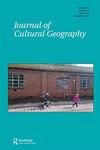Changing mental maps of the Baltic Sea and Mediterranean regions
IF 0.7
Q3 GEOGRAPHY
引用次数: 12
Abstract
ABSTRACT Little empirical research has considered the way in which macro-regions are perceived outside academic and political circles. Such studies alone can determine what regional narratives mean for the wider public, and the extent to which they coincide with region-building images produced by elites. This article examines the mental maps of high school seniors in 10 cities in the Baltic Sea and Mediterranean regions, focusing upon their perception and knowledge of other countries in those areas. Despite efforts at region building since the Cold War, the two regions remain divided on mental maps. Students have little knowledge of countries across the sea from their own, although such knowledge is generally greater among those from coastal (and particularly island) locations. A comparison with maps constructed by Gould in 1966 reveals that the perception of countries within one's own region among Italian and Swedish students has become more negative over the last 50 years.改变波罗的海和地中海地区的心理地图
很少有实证研究考虑到宏观区域在学术和政治圈之外的感知方式。只有这样的研究才能确定地域叙事对更广泛的公众意味着什么,以及它们在多大程度上与精英们产生的地区建设形象相吻合。本文研究了波罗的海和地中海地区10个城市的高中毕业生的心理地图,重点关注他们对这些地区其他国家的看法和知识。尽管自冷战以来一直在努力建立地区,但这两个地区在心理地图上仍然是分裂的。学生们对自己国家以外的国家知之甚少,尽管来自沿海地区(尤其是岛屿)的学生对这些国家的了解通常更多。与古尔德1966年绘制的地图相比,意大利和瑞典学生对自己所在地区国家的看法在过去50年里变得更加消极。
本文章由计算机程序翻译,如有差异,请以英文原文为准。
求助全文
约1分钟内获得全文
求助全文
来源期刊

Journal of Cultural Geography
GEOGRAPHY-
CiteScore
1.70
自引率
22.20%
发文量
15
期刊介绍:
Since 1979 this lively journal has provided an international forum for scholarly research devoted to the spatial aspects of human groups, their activities, associated landscapes, and other cultural phenomena. The journal features high quality articles that are written in an accessible style. With a suite of full-length research articles, interpretive essays, special thematic issues devoted to major topics of interest, and book reviews, the Journal of Cultural Geography remains an indispensable resource both within and beyond the academic community. The journal"s audience includes the well-read general public and specialists from geography, ethnic studies, history, historic preservation.
 求助内容:
求助内容: 应助结果提醒方式:
应助结果提醒方式:


